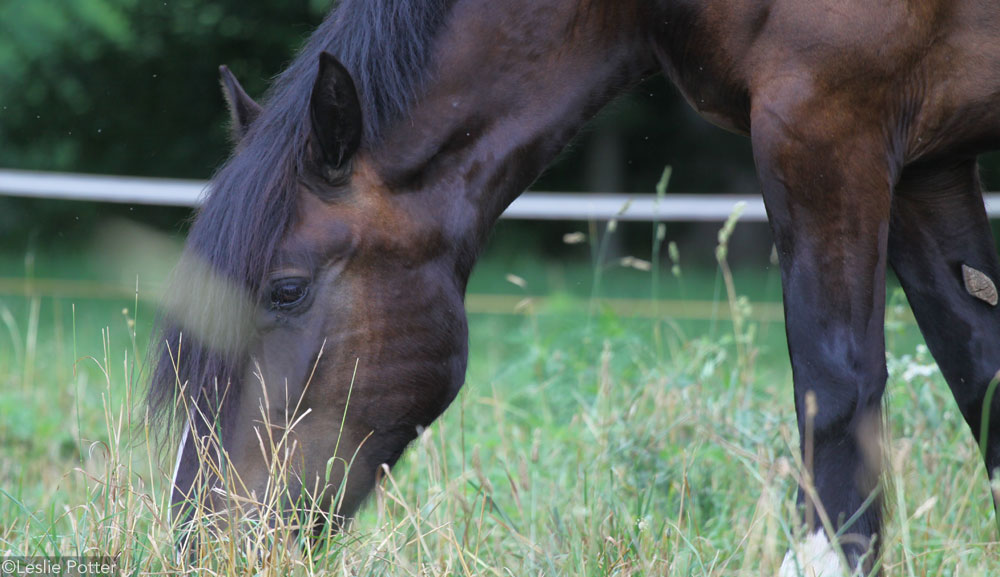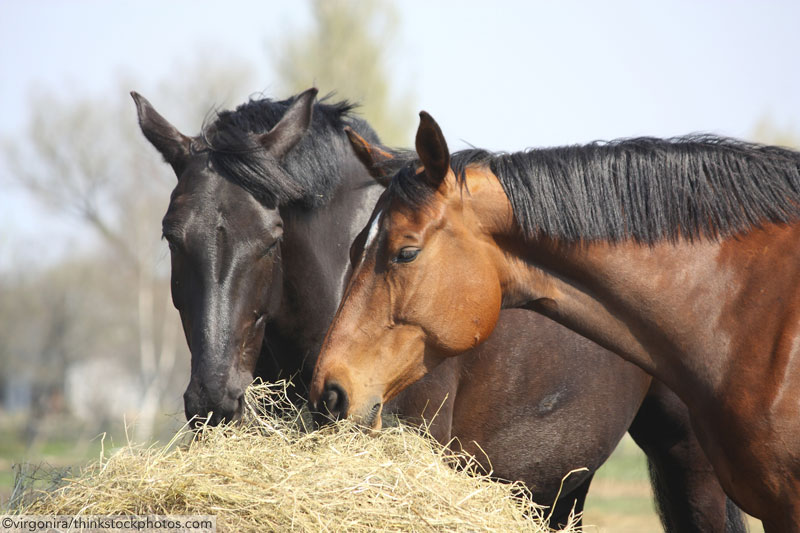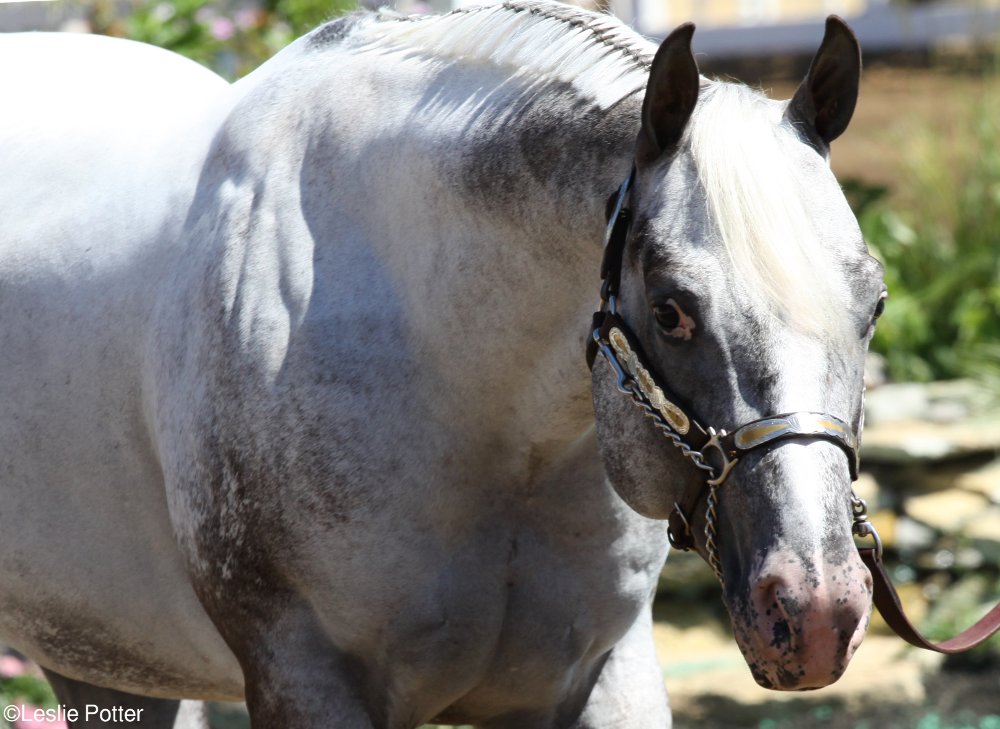In our Ask the Vet column, Dr. Lydia Gray answers your horse-health questions.
Q: We have had a few pasture horses develop “summer sores” on their lower lips, and I’ve heard it is caused by a fly-borne parasite. They were already wormed with Ivermectin about a month ago, which seems to be the most common treatment suggestion I can find. Can a horse develop summer sores even after deworming, or could this be something else? What is the best method of treatment?

A: “Summer sores,” also known as “fly sores” are a seasonal skin condition in horses that may be referred to by veterinarians as Cutaneous Habronemiasis. You’re right, they are caused by an infection of the skin from the larvae of the internal parasite the large-mouth stomach worm Habronema (and less commonly, Draschia). The classic presentation of Summer Sores are one or more open, draining, ulcerative nodules with swelling, redness, and itching. Generally located on the legs, inner corners of the eyes, lips, sheath, and penis, any moist area or where the skin has undergone injury or irritation such as an open wound can be a target.
Although the location and appearance of summer sores can be distinctive, I encourage you to have your veterinarian examine and diagnose the lesions to make sure that’s truly what you’re dealing with. This will help rule out other skin conditions which can look similar such as proud flesh, sarcoid, squamous cell carcinoma, and others. Biopsy is the best method of diagnosis, but deep scrapings of lesions may show actual parasite larvae.
Because summer sores are thought to be the result of an allergic reaction to the presence of parasite larvae in the skin, treatment is aimed at not only reducing the size of the lesions but also reducing the body’s inflammatory response. Therefore the recommendations may include a dewormer such as the ivermectin you already gave, or moxidectin, to target the larval (skin) and adult (stomach) stages of the parasite, a potent anti-inflammatory such as a corticosteroid, and an antibiotic to combat secondary bacterial infection. Topicals may also be prescribed and perhaps bandaging if the area permits.
To dig a little deeper into this condition, these skin lesions are the result of an “interruption” in the normal life cycle of the stomach worm. Instead of Habronema larvae passing into the manure, being ingested by fly larvae, then deposited on your horse’s lips to be swallowed which completes the usual cycle, flies deposit the stomach worm larvae on other parts of the horse’s body, leading to a severe local reaction that is often itchy.
So in order to help prevent summer sores, there are three steps you should take. First, use fly control measures such as fly spray, feed-through fly control, fans, manure removal, and fly predators. Second, take prompt care of any skin wounds which may attract larvae-carrying flies. Third, include ivermectin or moxidectin at least once in your horses’ annual parasite control program.





